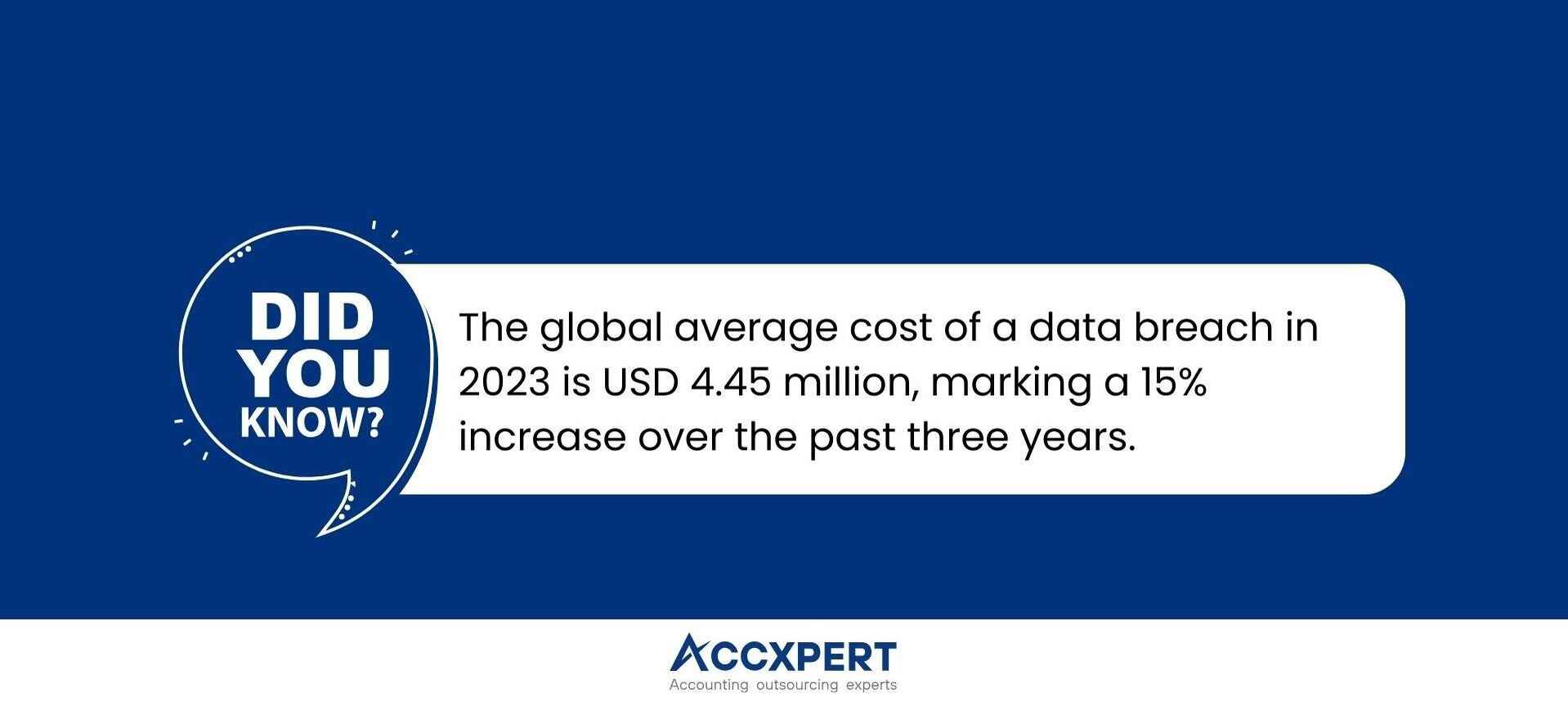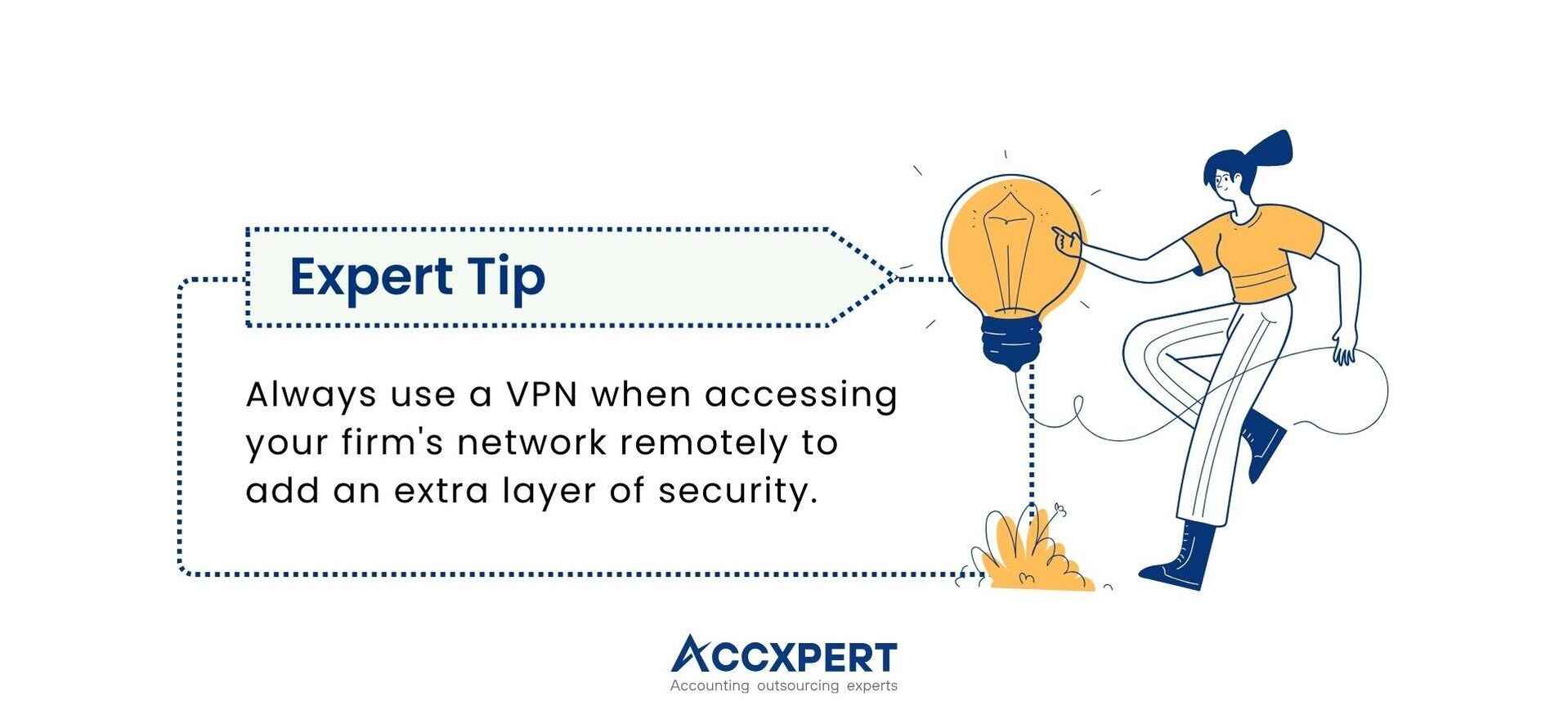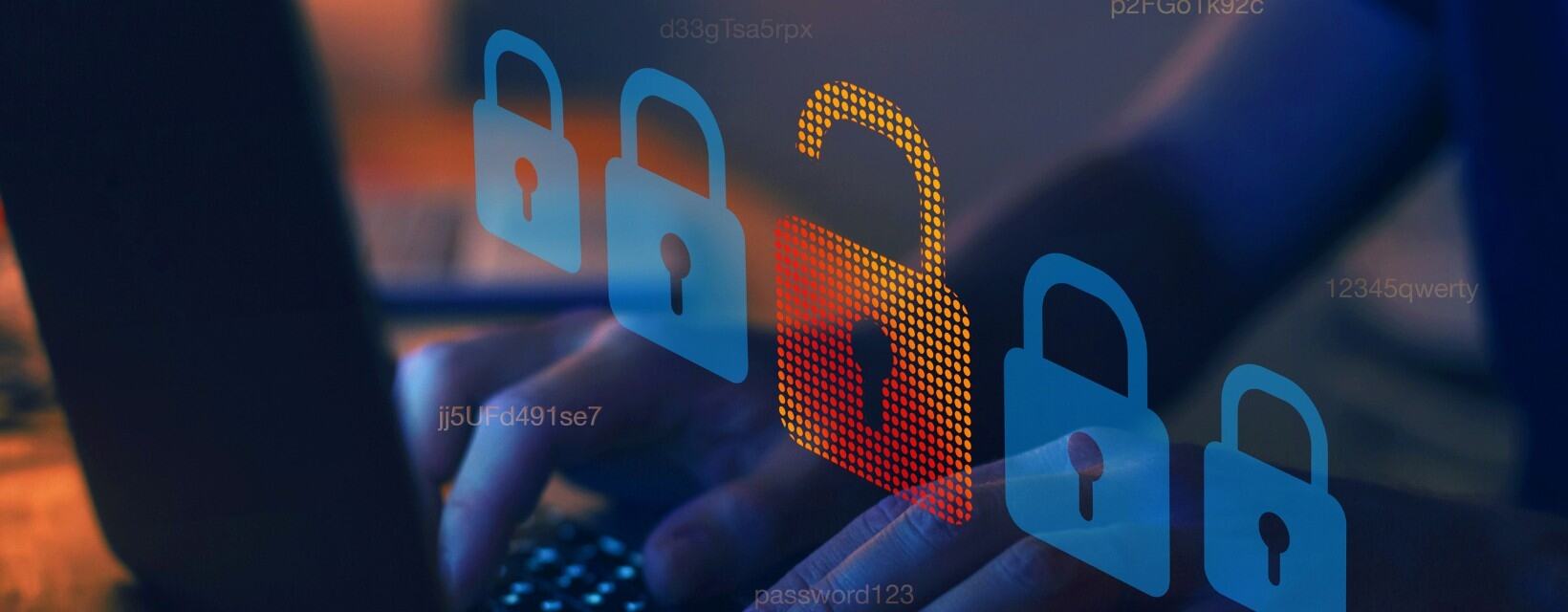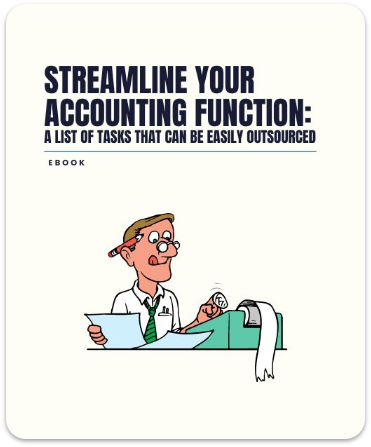How to protect your accounting firms from cyberattacks?
Introduction:
In a world that's rapidly moving online, the need to secure your business against cyber threats has never been more pressing. Accounting firms are especially at risk, given the confidential financial data they manage. This blog is designed to be your essential guide for navigating the complex cybersecurity landscape.
We'll discuss straightforward, actionable steps to bolster your firm's digital defenses, ensuring your data's safety and financial well-being. By taking proactive measures, you can prevent data breaches and enhance your firm's reputation for reliability and security.
Key takeaways
Accounting firms must prioritise cybersecurity due to the sensitive financial data they handle.
Accounting firms are susceptible to various cyberattacks, including malware, ransomware, phishing, etc.
Regularly updating software is crucial for defending against malware and ransomware attacks.
A cyberattack can severely damage a firm's reputation and erode client trust.
Failure to protect client data can also lead to legal consequences, including fines and sanctions.
Types of cyberattacks targeting accounting firms
Accounting firms handle sensitive financial data, making them attractive targets for cybercriminals. The threats range from harmful software and deceptive emails to risks within the company and from external partners. Understanding these diverse challenges is the first step in creating a robust cybersecurity strategy. Below, we delve into each type of threat and how to defend against it.
-
Malware and ransomware
Malware is harmful software that aims to disrupt or damage computer systems. Ransomware is a specialised malware that locks your computer files and demands payment to release them. Accounting firms are particularly vulnerable to these kinds of attacks due to the sensitive financial data they handle.
If malware or ransomware infiltrates the system, it can quickly jeopardise client information and financial records. The most effective way to guard against these threats is to update all software and educate staff about the risks of downloading files or clicking links from unfamiliar sources.
-
Phishing attacks
Phishing attacks often come in emails that appear to be from a trusted source. These emails usually contain a link or an attachment that, when clicked, can install malware on the user's system.
Because accounting firms deal with financial transactions, employees may be more likely to open emails related to financial matters, making them susceptible to phishing attacks. Training staff to recognise phishing attempts and implementing advanced email filtering solutions can mitigate these risks.
-
Third-party risks
Accounting firms often have to collaborate with third-party vendors for various services, which can open up additional avenues for cyberattacks. These third parties may not have robust cybersecurity measures, making them the weak link in the security chain. Due diligence in selecting vendors and insisting on stringent cybersecurity measures can help minimise this risk.
-
Insider threats
Insider threats originate from people inside the company, such as unhappy employees, contractors, or business associates. These individuals have detailed knowledge about the firms's security measures, data storage, and computer networks. The danger lies in their ability to misuse this privileged access to either steal information or enable other cybercrimes. Accounting firms can implement regular security checks, enforce stringent access limitations, and closely monitor employee activities to minimise these internal risks.
-
The cost of ignorance
Ignoring cybersecurity can be a costly mistake for accounting firms regarding immediate expenses and long-term repercussions. The costs are multifaceted, from financial burdens like ransoms and legal fees to reputational damage and legal consequences. These potential costs that firms could face are discussed in detail below.
-
Financial implications of a cyberattack
The immediate financial cost of a cyberattack can be staggering. Firms may have to pay a ransom to regain access to encrypted files, incur legal fees, and even face fines for failing to protect client data. Additionally, the cost of implementing new security measures post-attack can be significant.
-
Reputational damage
Beyond the immediate financial loss, a cyberattack can severely damage a firm's reputation. Clients entrust accounting firms with their most sensitive financial data, and a breach can erode this trust, leading to loss of clients and revenue. Rebuilding a tarnished reputation takes time and resources, further adding to the long-term cost of a cyberattack.
-
Legal consequences
Failing to protect client data can result in severe legal repercussions, including fines and sanctions. Laws and regulations require businesses to protect the personal information of their clients. A breach could result in legal action from clients or regulatory bodies, adding another layer of financial and reputational damage.
Worried about insider threats compromising your financial data?
Trust Accxpert's secure accounting outsourcing solutions.

Measures to fortify cybersecurity for your accounting firm
In today's digital landscape, safeguarding your accounting firm from cyber threats is not just a consideration—it's an absolute necessity. To strengthen your firm's defences and protect your client's confidential information, it's vital to implement a comprehensive cybersecurity strategy. Below, we have discussed key security measures that can help you strengthen your firm's cybersecurity.
-
Basic cybersecurity measures
Strong passwords are the cornerstone of basic cybersecurity measures. They act as the first line of defence against unauthorised access to systems. To create a strong password, it's advisable to use a mix of upper and lower case letters, numbers, and special characters.
Password managers can help in securely storing these complex passwords. Adding an extra layer of security, two-factor authentication (2FA) requires a second form of verification and a password, making it harder for cybercriminals to gain unauthorised access.
-
Advanced security protocols
Advanced security protocols include firewalls and network security measures that act as barriers between internal networks and incoming traffic from external sources. They filter out malicious traffic and provide a first defence against cyberattacks.
Data encryption is another advanced measure that transforms data into a code, which can only be accessed with a key, ensuring that the data remains unreadable even if a hacker gains access to the system. Regular security audits and assessments are also crucial as they help identify vulnerabilities and assess the effectiveness of current security measures, allowing for timely corrective actions.
-
Employee training and awareness
Human error often poses a significant risk in cybersecurity. Employees can unintentionally become a cybersecurity liability if they are not educated about potential dangers and best practices. Regular training sessions can help educate employees on recognizing phishing attempts and the importance of strong passwords.
Creating a culture of cybersecurity awareness within the organisation can further mitigate risks. Employees should be regularly updated and reminded about the importance of cybersecurity, making it a collective responsibility.
-
Regular monitoring and updates
Keeping systems up-to-date is crucial, as outdated systems are more vulnerable to attacks. Regular updates can patch these vulnerabilities, making the system more secure. Tools can also monitor network activity and flag any unusual or unauthorised behaviour.
Having an incident response plan is essential for outlining how to respond if a cybersecurity incident occurs, including steps for containing the breach, notifying affected parties, and restoring systems.
-
Working with cybersecurity professionals
There may come a time when the in-house team is not equipped to handle the organisation's cybersecurity needs. In such cases, external help should be sought. Managed security services can provide round-the-clock monitoring and immediate response to security incidents, freeing up internal resources for other tasks. Many accounting firms have successfully collaborated with cybersecurity experts to enhance their protective measures, offering greater security and robust defences against cyber threats.

How can Accxpert's comprehensive outsourcing services transform your accounting firm's cyber resilience and client trust?
At Accxpert, we specialise in a comprehensive suite of accounting outsourcing services that go beyond the basics. From bookkeeping and payroll management to managing your clients’ tax matters, we focus on optimising your firm's operational efficiency. Our versatile business models provide various options, including dedicated full-time virtual accountants and flexible project-based solutions.
What sets us apart is our ISO 27001 certification, which guarantees stringent cybersecurity measures to protect your firm's sensitive data and your clients' confidential information. Reach out to us to discover how Accxpert's comprehensive strategy can strengthen your accounting firm's cybersecurity and elevate the trust your clients place in you.
Ending note
In today's business landscape, cyberattacks pose an ever-growing threat to companies, including accounting firms. These threats jeopardise your firm's reputation and financial well-being and introduce the risk of missed opportunities and non-compliance with essential data protection regulations such as GDPR.
At Accxpert, we understand the importance of safety and security. Our top-tier accounting services are designed with a strong commitment to protecting your clients' financial data. When you partner with us, you can trust that our dedicated team is focused on fortifying your accounting operations against the increasing risk of cyber threats. Contact us today, and let's work together to strengthen your firm's cybersecurity.







